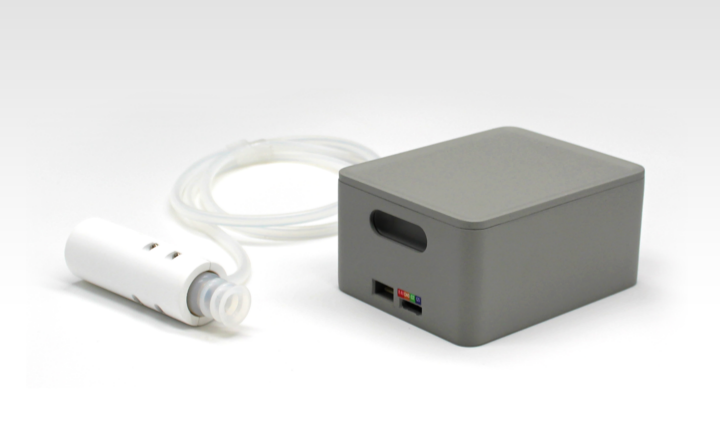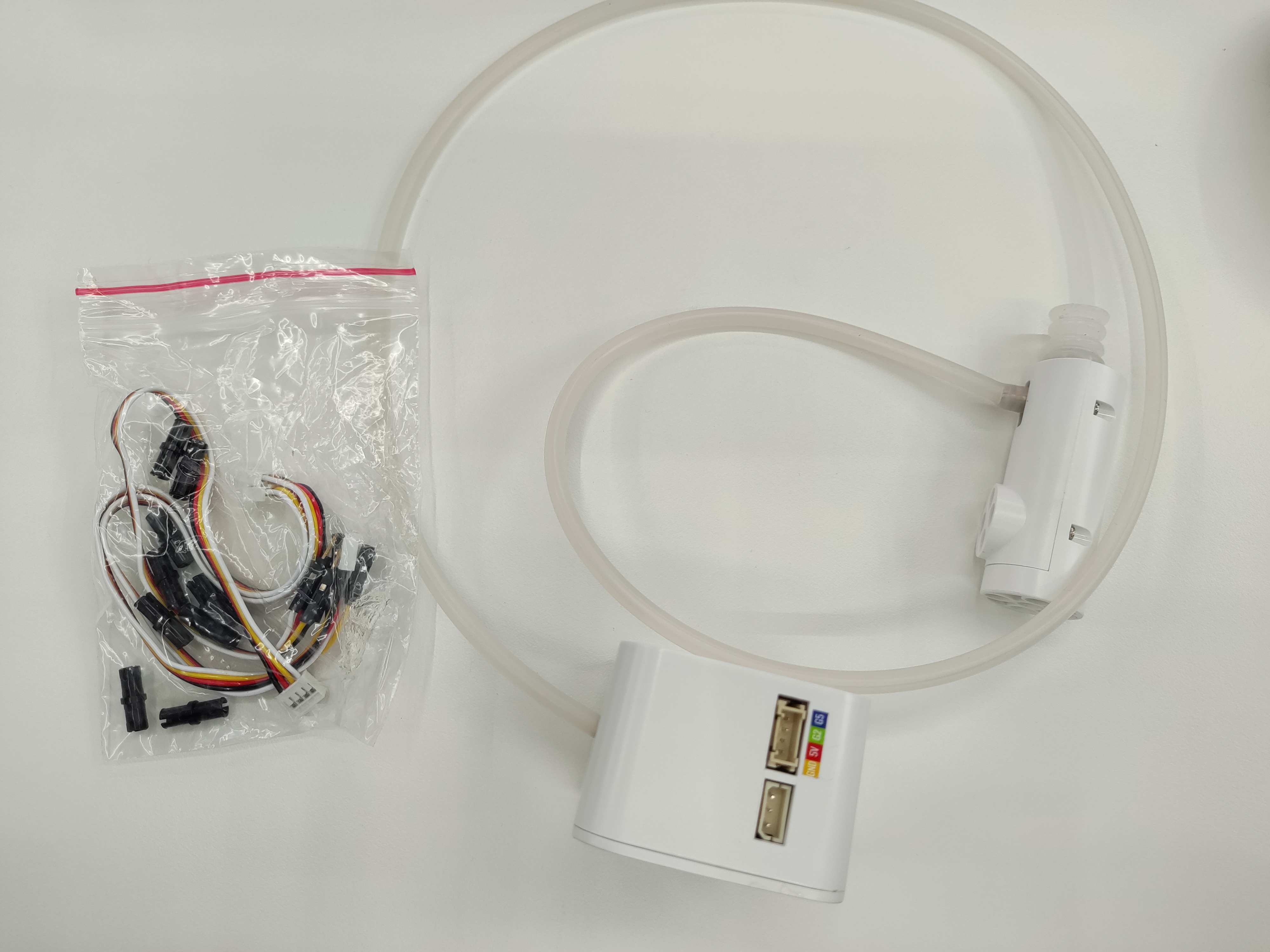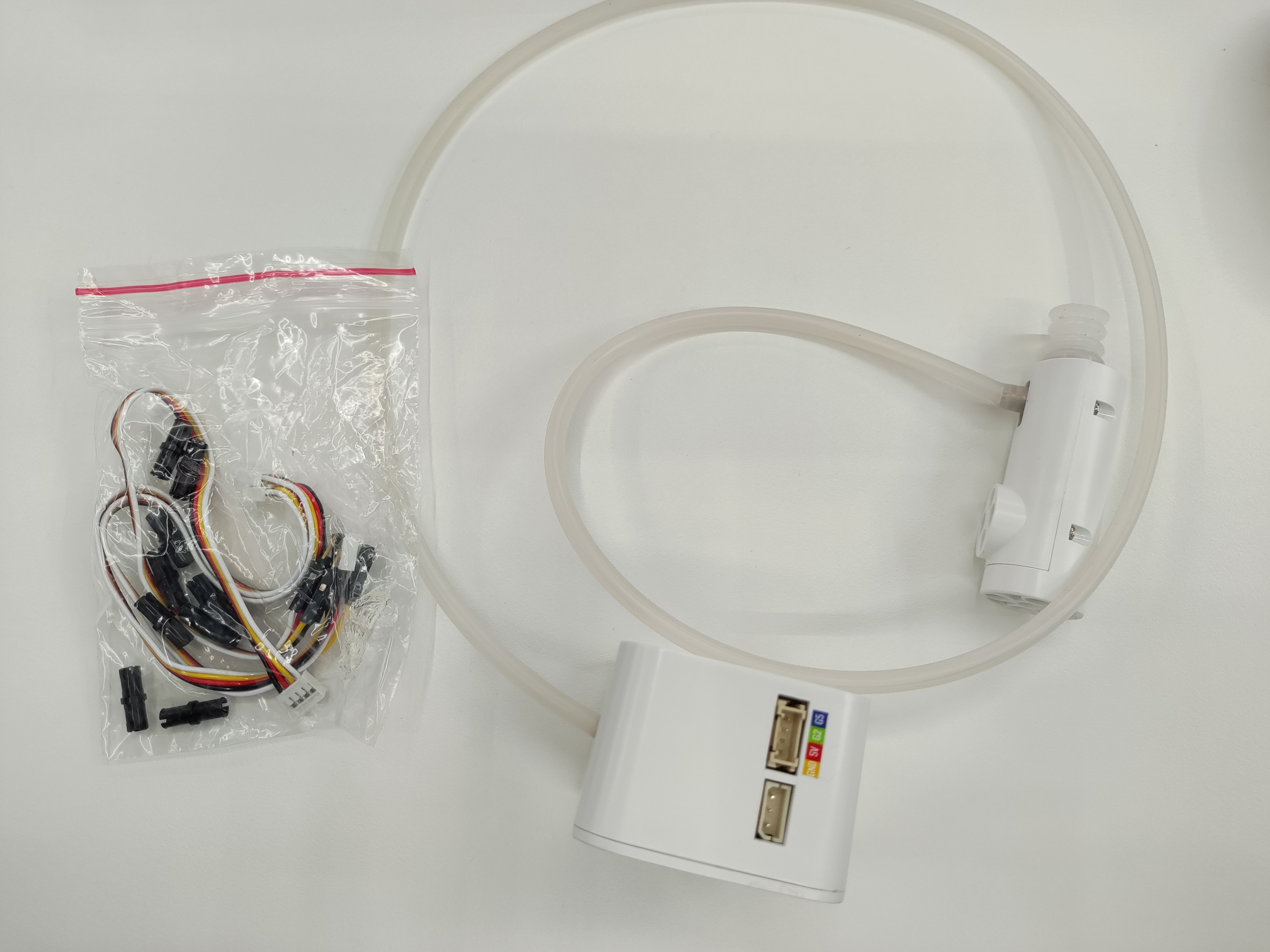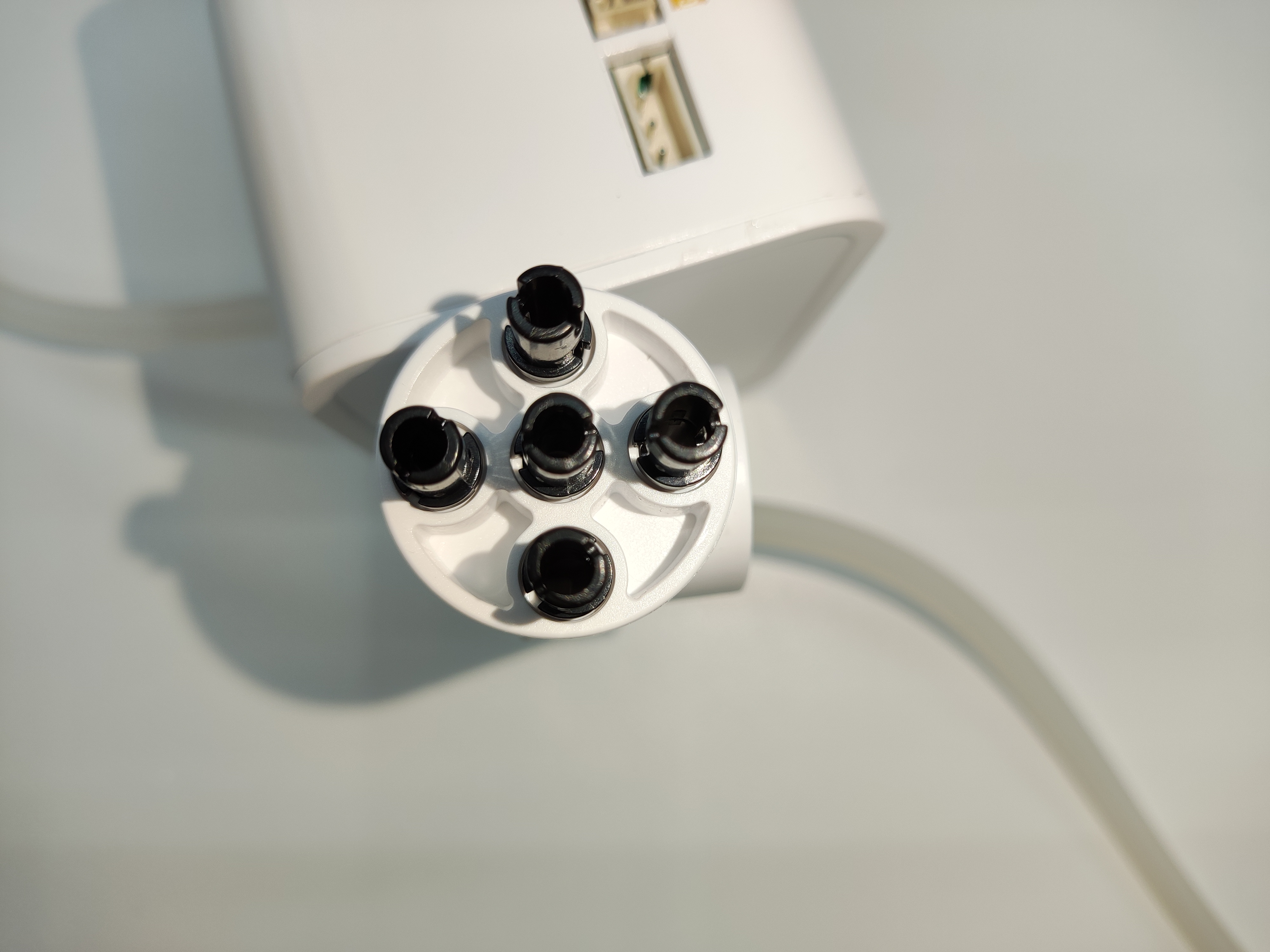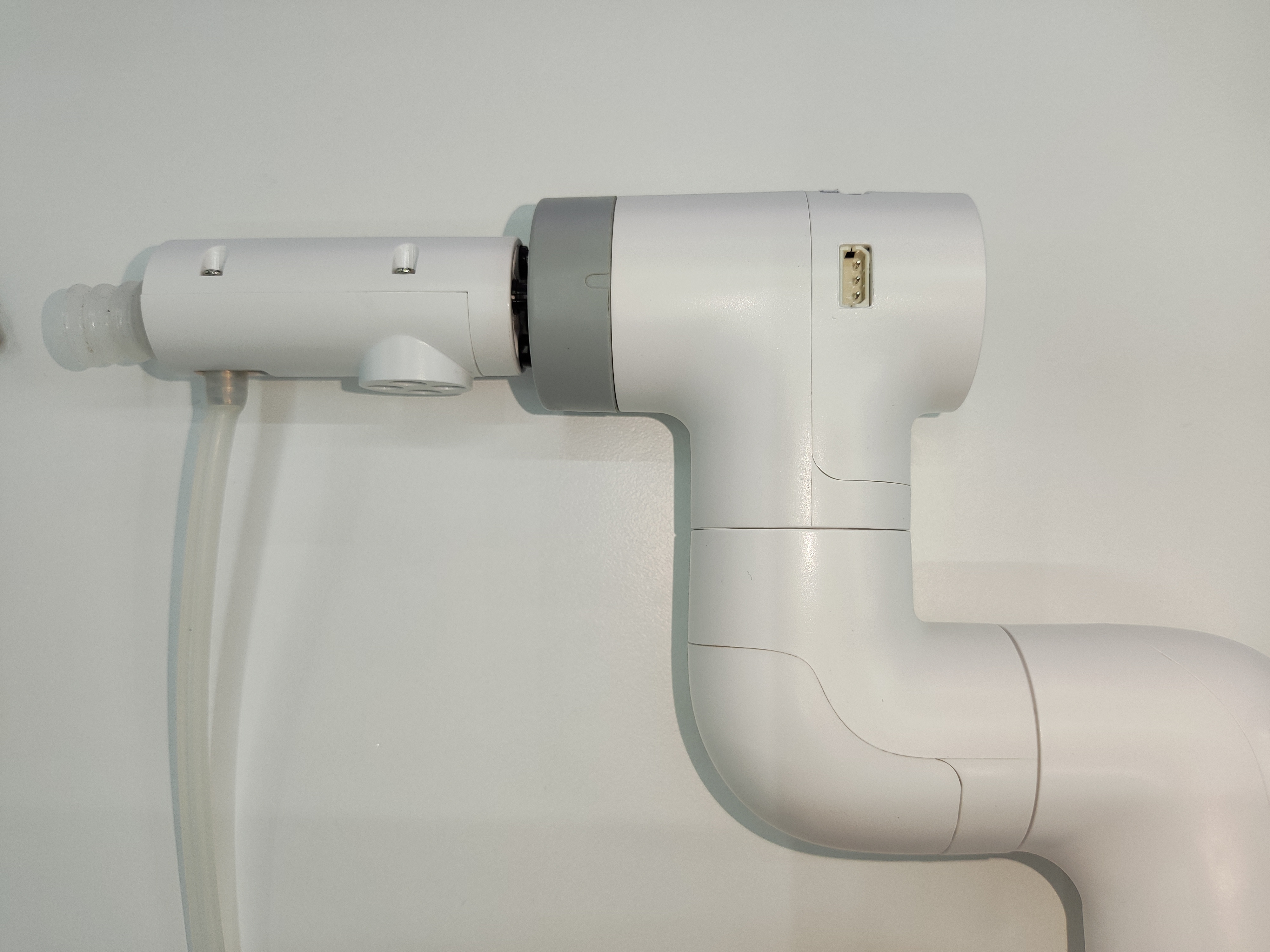Vertical Suction Pump V2.0
Product Image
Specifications
| Name | myCobot Vertical Suction Pump V2.0 |
|---|---|
| Model | myCobot_suctionPump_V2.0_grey |
| Material | ABS Injection Molding |
| Color | White |
| Dimensions | Pump Box: 72x52x37mm Pump Tip: 63x24.5x26.7mm |
| Number of Suction Cups | 1 |
| Suction Cup Size | Diameter 20mm |
| Suction Weight | 150g |
| Power Source | Pump Box |
| Service Life | One Year |
| Mounting Method | LEGO Connector |
| Control Interface | IO Control |
| Operating Environment Requirements | Normal Temperature and Pressure |
| Applicable Equipment | ER myCobot 280 Series, ER myPalletizer 260 Series, ER mechArm 270 Series, ER myBuddy 280 Series |
Suction Pump: Used for suctioning objects
Introduction
The suction pump, also known as a vacuum suction pump, features an inlet and outlet nozzle, an outlet nozzle, and a simple structure, compact size, ease of use, low noise, and excellent self-priming capability. The suction pump kit acts as the end effector of the robotic arm to perform the suctioning function.
Suction Pump Accessories: Power Cord x1, DuPont Cables x10, One-Input Two-Output Connecting Cable x1, Several Lego Technic Pieces
Working Principle
- When suctioning an object: The pump activates to suck air from the object and then stops, preventing air leakage.
- When releasing an object: The electronic valve activates, the air release valve opens, and air enters the vacuum cup and releases the object.
Applicable Objects
- Paper/Plastic Sheets
- Flat, Smooth Objects
- Cards, etc.
Installation and Use
- Check that the accessories package contains all the necessary items: LEGO connectors, DuPont cables, and a dual-head suction pump.
- Dual-head suction pump installation:
Structural installation:
Insert the LEGO connectors into the designated sockets on the suction pump.
Align the suction pump with the connector plugged in with the socket at the end of the robotic arm and insert it:
Electrical connections:
Select a male-female Dupont cable and insert the female end into the marked pin socket on the suction pump box:
Male-female DuPont wire:
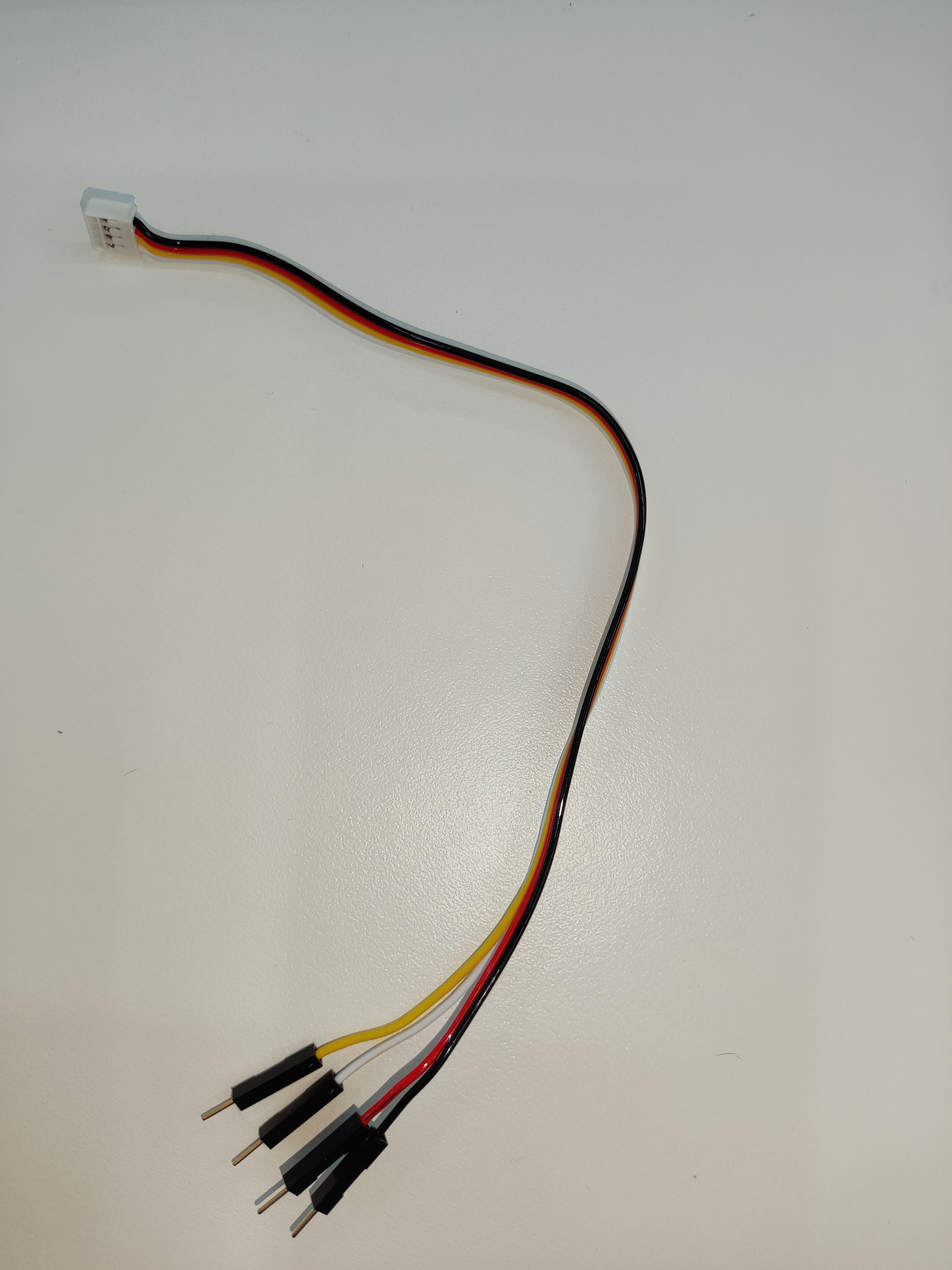 Note the correspondence between the DuPont wire colors and pins in the figure:
Note the correspondence between the DuPont wire colors and pins in the figure:
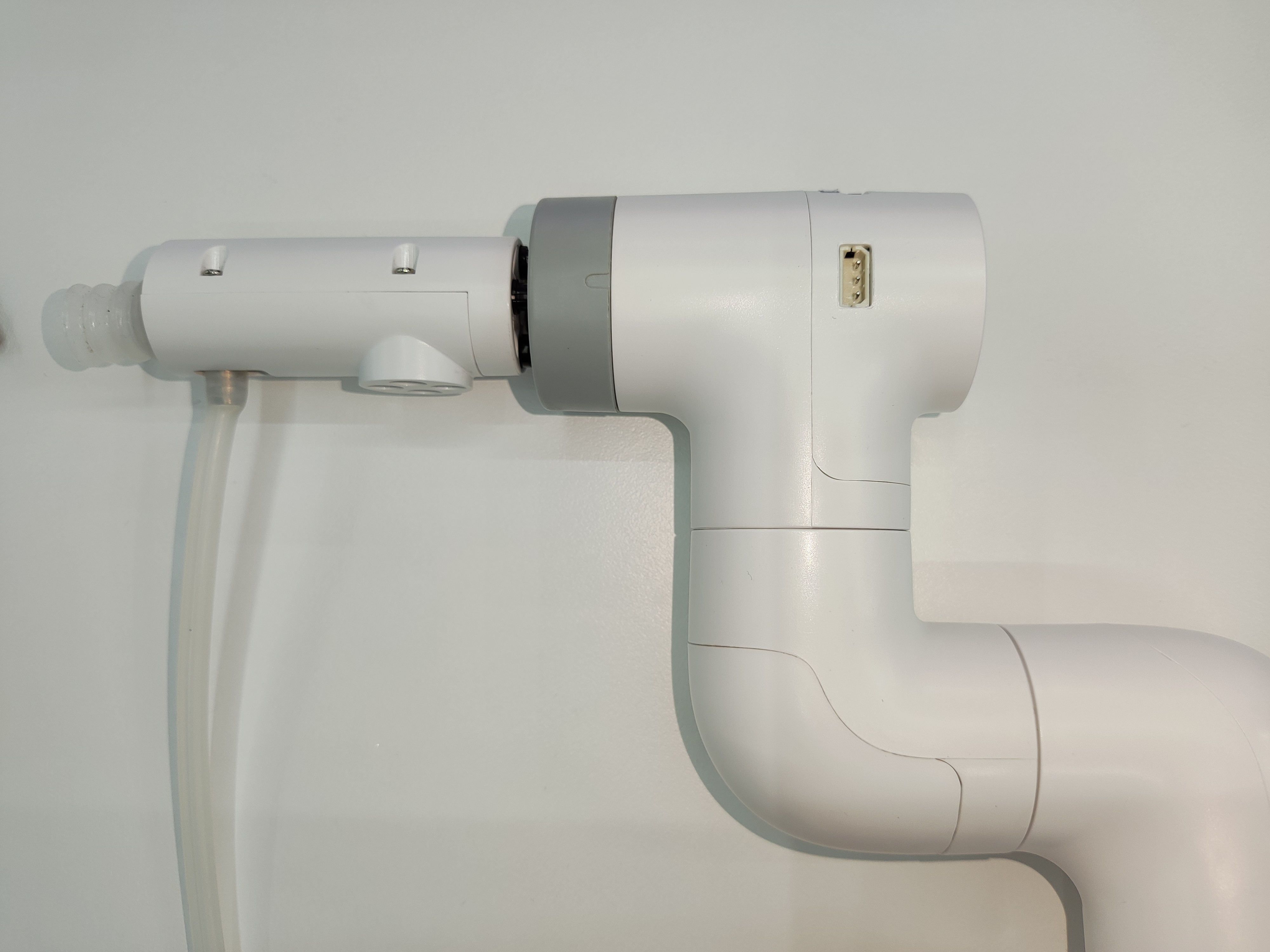
Insert the male connector into the pins on the base of the robotic arm according to the given correspondence:
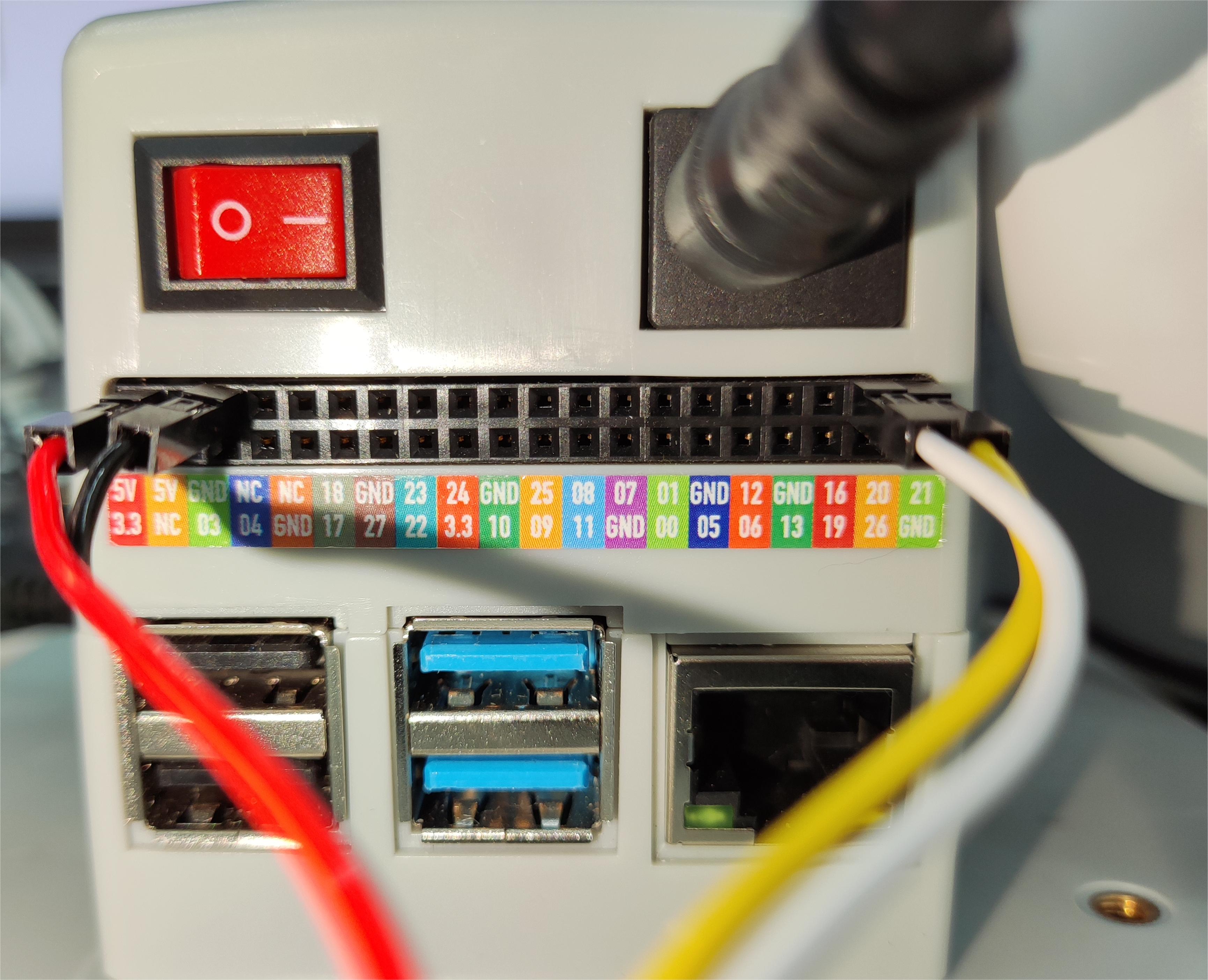
The left side is the suction pump pin, and the right side is the robotic arm pin GND -> GND
5V -> 5V
G2 -> 21
G5 -> 20
Programming Development:
Using Python to program a suction pump
The code is as follows:
280-M5 version:
from pymycobot.mycobot280 import MyCobot280 import time # Initialize a MyCobot280 object mc = MyCobot280("COM3", 115200) # Turn on the suction pump def pump_on(): # Open the solenoid valve mc.set_basic_output(5, 0) time.sleep(0.05) # Stop priming the pump def pump_off(): # Close the solenoid valve mc.set_basic_output(5, 1) time.sleep(0.05) # The deflation valve starts working mc.set_basic_output(2, 0) time.sleep(1) mc.set_basic_output(2, 1) time.sleep(0.05) pump_off() time.sleep(3) pump_on() time.sleep(3) pump_off() time.sleep(3) GPIO.cleanup() # release pin channel280-Pi 版本:
from pymycobot.mycobot280 import MyCobot280 from pymycobot import PI_PORT, PI_BAUD # When using the Raspberry Pi version of mycobot, you can reference these two variables to initialize MyCobot import time import RPi.GPIO as GPIO # Initialize a MyCobot280 object mc = MyCobot280(PI_PORT, PI_BAUD) # Initialization GPIO.setmode(GPIO.BCM) # Pins 20/21 control the solenoid valve and the bleed valve, respectively GPIO.setup(20, GPIO.OUT) GPIO.setup(21, GPIO.OUT) # Turn on the suction pump def pump_on(): # Open the solenoid valve GPIO.output(20,0) # Stop priming the pump def pump_off(): # Close the solenoid valve GPIO.output(20,1) time.sleep(0.05) # Open the vent valve GPIO.output(21,0) time.sleep(1) GPIO.output(21,1) time.sleep(0.05) pump_off() time.sleep(3) pump_on() time.sleep(3) pump_off() time.sleep(3) GPIO.cleanup() # release pin channel
